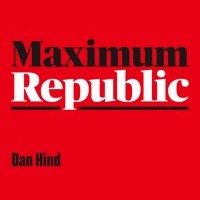
Q&A: Dan Hind, author of “Maximum Republic”
Britain has been fooled. Told that ‘republicanism’ just meant sacking the monarchy, the British have missed its radical vision for the future. James Stern-Weiner, co-editor of the New Left Project, interviews Dan Hind, the author of a new pamphlet that seeks to ignite the flame.

In Timor-Leste, deepening democracy means ongoing international support for electoral authorities
The Report of the Global Commission on Elections, Democracy and Security identified building professional, competent electoral management bodies (EMBs) as one of the five major challenges that must be overcome to conduct elections with integrity.
There is more to it, though. East Timor, for example, has EMBs. And it has made demonstrable progress in its elections since independence. But its EMBs still need help.
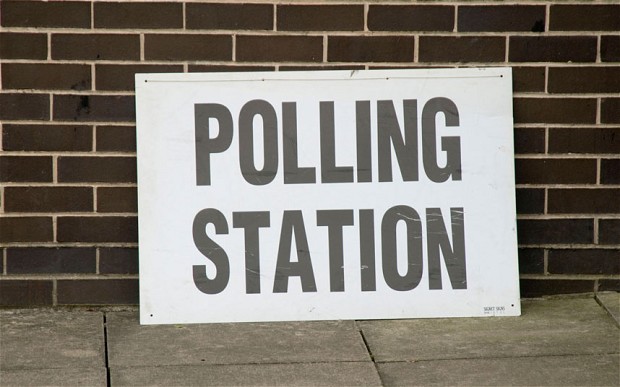
Democracy in Britain: Decline, reform, and a place called Bettws
Political pundits in Britain often frame competition in elections as a fight for ‘middle England’. Each election, they invent names such as ‘Essex man’ or ‘Worcester woman’ to describe archetypal voters representative of marginal constituencies necessary to win a parliamentary majority. Bettws ward in Gwent, Wales, may not be the typical bellwether for the nation’s politics, but its significance rose with the first ever election of Police and Crime Commissioners (PCCs) across England and Wales.

Wales and Taxes: One small country, one big report, one great democratic idea
Did you hear about the Silk Commission last week…?
No?
Let me explain: the Commission produced a report which threw its weight behind a key democratic idea which a country – any country – can adopt to deepen democracy.
As the Global Commission on Elections, Democracy & Security noted, developing democracies often have problems that no longer are an issue in mature democracies. But that doesn’t mean that democracy or the accountability process in European countries is perfect.
For example, what if you elect politicians who enjoy legislative and spending powers, but who do not have tax or borrowing powers? Wouldn’t that place limitations on democratic accountability, or to turn a phrase, be representation without taxation?
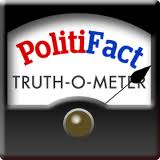
Deepening Democracy in the United States: “Elections with integrity” require accurate information
I think it’s fair to say that democracy in the United States is already pretty “deep”. As a US citizen, I feel incredibly lucky to live in a society whose history is rooted in democratic ideals—a society that continues to benefit from the types of “elections with integrity” that the 2012 Report of the Global Commission on Elections, Democracy, and Security promotes.
It’s therefore tempting to say that everything is just fine, that democracy in the United States is “deep” enough.
But I would argue that democracy, in any meaningful sense, requires an informed citizenry—and, accordingly, that an informed citizenry is a necessary precondition for all of the recommendations that the 2012 Global Commission Report contains.
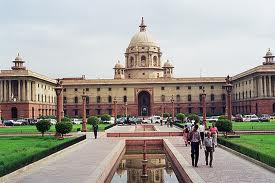
Deepening Democracy in India: Fine-tuning rules and procedures to strengthen parliamentary oversight on the government
The Deepening Democracy report by the Global Commission on Elections, Democracy and Securitydiscusses the importance of improving the integrity of elections. While fairness, funding and conduct of elections undoubtedly is a concern that citizens espouse worldwide, that in itself may not be a panacea to fulfil the function of representative democracy. Sometimes democracy itself is undermined in democratically elected Parliaments due to rules biased towards the elected government, and not giving sufficient power to opposition members and independent members of Parliament to voice their concerns.
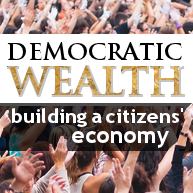
‘An Iron Chain of Bondage’: Lessons from the Knights of Labor
As modern workers, we have much to learn from the rich tradition of labour republicanism in America. The second piece in our Democratic Wealth series, hosted with OurKingdom. In 1828, William Heighton, a radical shoemaker, announced to a group of Philadelphia labourers that the wage-labour system “is…an iron chain of bondage. A system of unjust abstraction, oppression, and legal fraud, by which the most useful classes of society are drained of their wealth, and consigned over to eternal toil and never-ending slavery.” Heighton had just created the first formal political party of workers in modern history, the Working Men’s Party of Philadelphia.

Deepening Democracy Means Looking Beyond Elections
We must remember that democracies are not self-executing systems; they stand on complex political institutions that reflect the political power of the citizenry. For many countries, then, the challenge is keeping the population constructively engaged in the democratic process following successful free and fair elections.









